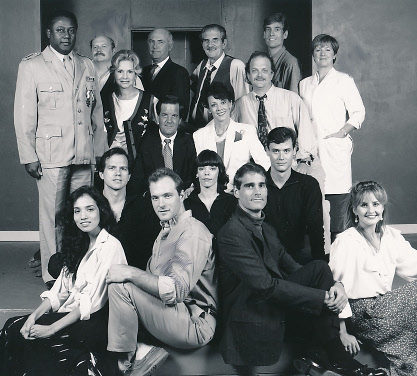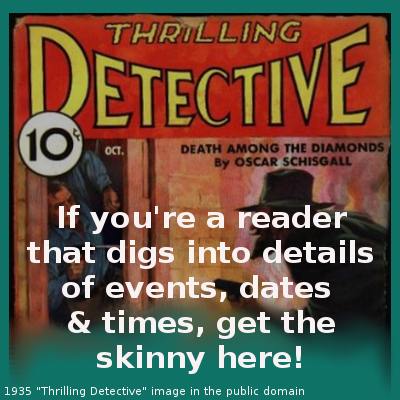

Here the author describes how acting helped flesh out characters in The Father.
“There may be no better means to a story’s character development than acting. The playwright’s words are a guide that can be played any number of ways. Each with the purpose of revealing the soul of that character in response to their goal and other actors on stage. Add to this the performance of different characters, settings, tensions, with different directors demanding turns of character you never thought of, and theater is an amazing place to hone the craft of your characters on paper. (For how to use science in your writing, click this. To see how art can help, go here).
“On a dare from my girlfriend at the time I took an acting class to prove that acting was not (with a bit of the scientist's smugness) 'rocket science' – anybody could do that. The experience proved that I was right, acting is not rocket science, and that I was magnificently wrong. Few can be an actor without tremendous effort - certainly not me. This led to greater interest and more classes. A Houston director asked if I’d audition for a part in her latest stage production. Cast in a lead role, I was terrified, and rightfully so. But I also caught the acting bug. Learning the introductory mechanics of acting, creative options in playing the character began to emerge, and how this could translate in my own writing.
“It shouldn't be surprising that playing someone else and writing characters of your own are translatable, given that playwrights live by the same rules as any other writer. Readers should be made to feel sympathetic to protagonists; characters must change by story’s end; they require their own authentic ‘voice.’ This last one caused problems. There were occasions I could not write what certain characters demanded. Not infrequently I was strongly opposed to some character's perspective, politics or vocabulary. But those harsh scenes were absolutely a requirement of the story and after many deletions I yielded to the character. Strange as it sounds to readers, any writer knows that in the most engaged writing sessions, characters write the story themselves. You, the author, are along for the ride, with a sort of odd amazement at the next thing they say or do. Can the writer steer those characters? Of course. The writer can also betray the story. A writer who seeks to be true to the story will let those characters talk for themselves or risk sterilizing it.
“Sanford Meisner wrote that it takes twenty years to produce a good actor. While serious actors may approach fifty stage plays in a lifetime, I took co-leading roles in only five. I was never in the neighborhood of Meisner’s club of fine talent, but the experience I had proved to me that acting could dramatically improve each character I wrote about to be their own person. Acting provided another means for getting inside their head to create authentic people on the page.”





